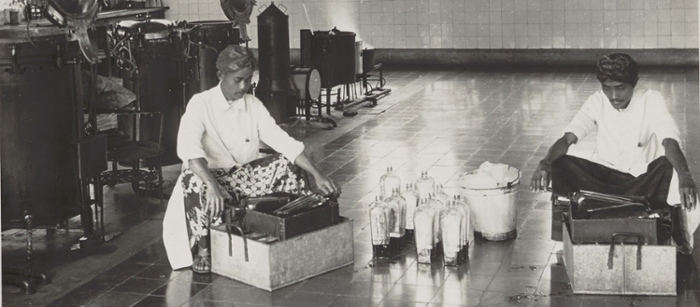Stevin Seminar: Colonial patients and medical research

Program
15:30 Welcome by Ab Flipse (Stevin Centre VU)
15:30 Lecture Fenneke Sysling
16:00 Response Susie Protschky
16:15 Questions/Debate
16:45 Drinks
Speaker: Fenneke Sysling (Leiden University)
Respondent: Susie Protschky (VU Amsterdam)
In her paper, Fenneke Sysling will discuss her ongoing project about moral ideas and ethical practices in medical research and experiments in Colonial Southeast Asia during the 20th century. She will focus on Indonesia where thousands of people were used as test subjects for the research of European doctors. They were administered new types of medicine, their stools or blood were studied or postmortem examinations were done on their dead bodies. Sometimes they suffered from side-effects but as patients they also benefited from trying new kinds of medicine. After sketching this history of colonial patients’ role in medical research particular attention will be paid to what we can learn as historians from cases of consent and refusal.
Fenneke Sysling is an assistant professor at the Institute for History (Leiden University), specialized in the history of science, medicine and colonialism. Her interests include ethics, race, colonial heritage and museum objects. She recently received a VIDI grant for her project ‘Who was behind every successful scientist in colonial Indonesia?
Susie Protschky is Professor of Global Political History (VU Amsterdam). She is specialised in modern Dutch colonialism, Indonesian history, and the history of photography.
About the VIDI project:
Who was behind every successful scientist in colonial Indonesia?
Behind every successful scientist in colonial Indonesia, were local informants and assistants. They provided information the scientists needed or they collected plants or animals. In this project, the researchers focus on these Indonesian individuals. They show what role Indonesians have played in the making of (scientific) knowledge about nature and culture in colonial and postcolonial Indonesia. This includes their contribution to Western scientific knowledge but also, and more importantly, their influence on local knowledge communities.
December 2th, 15:30-17:00, Main Building HG-11A37

